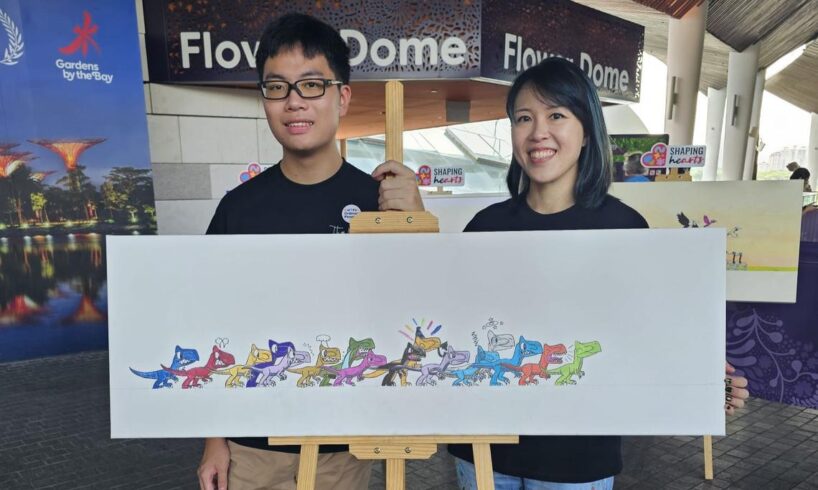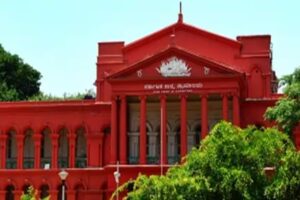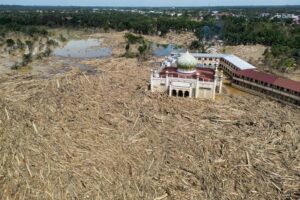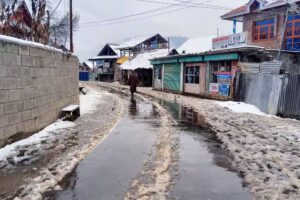
Special needs educator Lun Wei Shi often relies on her handmade “communication charts” – simple boards with visual icons – to help her students express themselves better.
For example, if a student needs to wash their hands, they can point to the corresponding icon. Similarly, Ms Lun can do the same to make sure her instructions are understood clearly.
This simple tool supports clearer expression, helping bridge the gap between thoughts and words for people with autism, when everyday communication may feel challenging.
It is one of the many practical aids the 33-year-old has designed, after completing the Supporting Communication module in the
Master of Special and Inclusive Education
offered by the
Newcastle Australia Institute of Higher Education
(Newcastle Australia).
The school, established in Singapore in 2006, is the Asia Pacific hub of the University of Newcastle in Australia (UON).
Ms Lun’s handmade “communication charts” display clear visuals for her students to refer to and express their needs with confidence.
PHOTO: COURTESY OF LUN WEI SHI
“Australian universities are known for their strengths in the special education sector, and I was considering moving there for studies,” recalls Ms Lun, who is the programme manager and associate psychologist at Extraordinary People, a local charity.
The charity supports children and youth with special needs, and she runs its Creative Lab, which aims to empower those with artistic talent to earn a living through their works.
When Ms Lun researched her options, she discovered the part-time programme by Newcastle Australia. It appealed to her with its comprehensive theoretical learning and hands-on approach to coursework that ties closely to her day-to-day work.
“A very big factor for me in choosing Newcastle Australia was that its programme is curated for people in the sector. Although it’s a programme from Australia, the lecturers have a wealth of knowledge about the Singaporean education system and social service sector,” she adds.
“They are also very intentional in curating our assignments to think about how the various theoretical approaches can be applied in Singapore.”
Another tool – a visual schedule – Ms Lun developed shows her students what to expect at different times in class, so they can manage transitions with less anxiety.
PHOTO: COURTESY OF LUN WEI SHI
Furthermore, Ms Lun was able to tap a study grant that paid a significant portion of her course fees. The grant, which varies, is open to all students enrolled in the institute’s master’s programmes.
For Ms Buanesvari Paarvati, 33, her family’s sole breadwinner, the grant encouraged her to enrol in the
Master of Business Psychology
.
The part-time programme is equipping her with the skills to apply psychological theory to real-world leadership and team management at Samaritans of Singapore, a suicide prevention agency, where she is an assistant manager.
“The programme’s focus on applied psychology in organisations, such as assessment, change management and leadership, resonated with my professional interests and offered insights I felt could be valuable across various workplace settings,” she explains.
Her course is ranked second in Australia for overall satisfaction by graduates, according to the latest Australian government-funded
Graduate Outcomes Survey 2021-2023
.
At Samaritans of Singapore, assistant manager Buanesvari Paarvati leads a team that provides crisis support to those in need.
PHOTO: COURTESY OF BUANESVARI PAARVATI
Both Ms Lun and Ms Buanesvari value the flexibility provided by the university, without which it would have been challenging to juggle classes with their unpredictable work schedules.
“If we cannot be physically in the classroom, we can Zoom in,” says Ms Buanesvari, who works shifts. “The lectures are recorded if we miss a class, and the lecturers are very understanding and give us some leeway with deadlines if unexpected work comes up.”
Ms Lun has also been able to balance work and study in the special education sector, where working on weekends is common.
“There’ve been times when I had to leave early or miss a morning class, so being able to catch up with the recorded sessions really helps,” she says.
Such practical support, in addition to the institute’s trusted reputation, gives working adults like Ms Lun and Ms Buanesvari the confidence to commit to part-time studies while working full time.
In the QS World University Rankings 2025, UON was named as one of the top 250 universities globally, securing the 179th spot. Twelve of its subjects ranked in the top 200 internationally in their respective fields.
Moreover, 95 per cent of UON’s research is “at or above world standard”, according to the independent Australian government-led
Excellence in Research for Australia Report
.
One example is its
Master of Environmental Management and Sustainability
, which includes United Nations (UN)-certified modules. These give a boost to those aiming to work in multinational firms, global agencies, or cross-border green finance and sustainability reporting.
Times Higher Education
also ranks UON’s commitment to sustainability and climate action among the top 40 universities in the world for impact, adding to the school’s credibility.
The ranking is based on how the universities are progressing towards the UN’s 17 Sustainable Development Goals. UON has
embedded sustainability
across its operations and programmes, from supporting research into green energy to shifting away from single-use plastic.
As Singapore races to meet its net-zero emissions target by 2050,
local demand for sustainability professionals is surging too
. With the master’s programme, students acquire practical knowledge and credentials increasingly sought after by employers.
Beyond sustainability, Newcastle Australia also offers programmes that build capabilities in Singapore’s fast-evolving healthcare sector.
Its
Master of Health Economics, Management and Policy
is run by its Newcastle Business School, which is accredited by the Association to Advance Collegiate Schools of Business. This globally recognised accreditation is held by only five per cent of business schools worldwide.
Besides gaining in-demand skills to tackle modern healthcare system challenges, Singapore’s current and budding healthcare leaders and analysts who take up the master’s programme can earn internationally-respected credentials, improving their career prospects.
Ms Buanesvari hopes her master’s will help her step into senior leadership roles in the social service sector, where she aims to make a bigger impact.
PHOTO: COURTESY OF BUANESVARI PAARVATI
Ms Lun and Ms Buanesvari are already excited for the opportunities that their respective qualifications will open up for them.
“Having a master’s degree is really helpful in honing the trust that others have in you and the work that you are doing as an educator,” Ms Lun notes.
Ms Buanesvari, who aspires to take on a key leadership position in the social service sector, adds: “Beyond the knowledge itself, the master’s degree shows a commitment to developing myself.
“It positions me better for senior roles in the future, where I can lead larger teams or even contribute to the strategic planning within the sector. I see it as a stepping stone for me to make a better impact within the sector.”
Learn more about the various
master’s programmes in Singapore
available at Newcastle Australia Institute of Higher Education.





